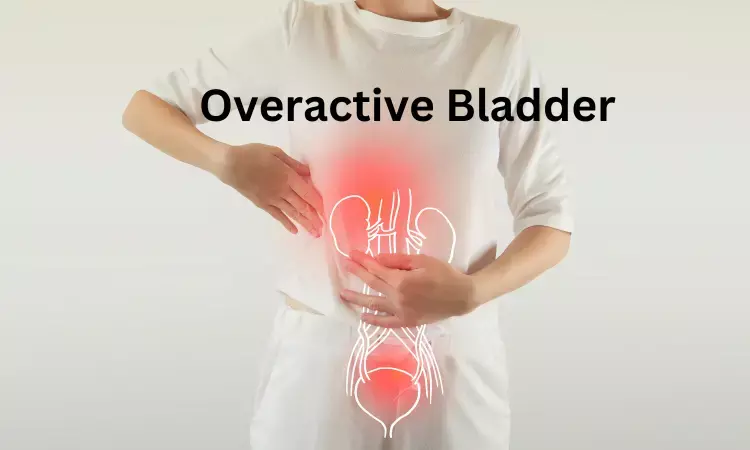- Home
- Medical news & Guidelines
- Anesthesiology
- Cardiology and CTVS
- Critical Care
- Dentistry
- Dermatology
- Diabetes and Endocrinology
- ENT
- Gastroenterology
- Medicine
- Nephrology
- Neurology
- Obstretics-Gynaecology
- Oncology
- Ophthalmology
- Orthopaedics
- Pediatrics-Neonatology
- Psychiatry
- Pulmonology
- Radiology
- Surgery
- Urology
- Laboratory Medicine
- Diet
- Nursing
- Paramedical
- Physiotherapy
- Health news
- Fact Check
- Bone Health Fact Check
- Brain Health Fact Check
- Cancer Related Fact Check
- Child Care Fact Check
- Dental and oral health fact check
- Diabetes and metabolic health fact check
- Diet and Nutrition Fact Check
- Eye and ENT Care Fact Check
- Fitness fact check
- Gut health fact check
- Heart health fact check
- Kidney health fact check
- Medical education fact check
- Men's health fact check
- Respiratory fact check
- Skin and hair care fact check
- Vaccine and Immunization fact check
- Women's health fact check
- AYUSH
- State News
- Andaman and Nicobar Islands
- Andhra Pradesh
- Arunachal Pradesh
- Assam
- Bihar
- Chandigarh
- Chattisgarh
- Dadra and Nagar Haveli
- Daman and Diu
- Delhi
- Goa
- Gujarat
- Haryana
- Himachal Pradesh
- Jammu & Kashmir
- Jharkhand
- Karnataka
- Kerala
- Ladakh
- Lakshadweep
- Madhya Pradesh
- Maharashtra
- Manipur
- Meghalaya
- Mizoram
- Nagaland
- Odisha
- Puducherry
- Punjab
- Rajasthan
- Sikkim
- Tamil Nadu
- Telangana
- Tripura
- Uttar Pradesh
- Uttrakhand
- West Bengal
- Medical Education
- Industry
Multicomponent intervention may improve health-related quality of life among women with moderate to severe OAB: JAMA

Overactive bladder (OAB) is a common condition affecting women, often leading to decreased quality of life. While cognitive components are recognized in behavioral therapy for OAB, there's a lack of studies evaluating the effectiveness of multicomponent interventions. A recent clinical trial conducted in Japan evaluated the effectiveness of a multicomponent intervention in improving health-related quality of life (HRQOL) for women with moderate to severe overactive bladder (OAB). The study found that participants who received the multicomponent intervention experienced significantly greater improvements in HRQOL compared to those in the waiting list control group.
This study was published in the journal JAMA Network Open by Satoshi F. and colleagues. clinical trial aimed to address this gap by examining the efficacy of a multicomponent intervention in improving health-related quality of life (HRQOL) for women with moderate to severe OAB.A multicenter, open-label, randomized clinical trial conducted in Japan recruited women aged 20 to 80 years with moderate to severe OAB. Participants were randomized to either four 30-minute weekly sessions of a multicomponent intervention or a waiting list control group. Primary outcomes included changes in HRQOL total scores, OAB symptom score, and frequency volume chart.
The key findings of the study were:
79 women were randomized, with 39 participants in the intervention group and 40 in the waiting list control group.
Change in HRQOL total score from baseline to week 13 was significantly higher in the intervention group (23.9 points) compared to the waiting list group (11.3 points), with a significant difference of 12.6 points (P < .001).
Superiority of the intervention was confirmed for frequency of micturition and urgency but not for OAB symptom score.
The study demonstrates that a multicomponent intervention improves HRQOL for women with moderate to severe OAB, suggesting the cognitive component may be an effective treatment option. This highlights the importance of considering multicomponent approaches in managing OAB to enhance quality of life for affected individuals.
Reference:
Dr Riya Dave has completed dentistry from Gujarat University in 2022. She is a dentist and accomplished medical and scientific writer known for her commitment to bridging the gap between clinical expertise and accessible healthcare information. She has been actively involved in writing blogs related to health and wellness.
Dr Kamal Kant Kohli-MBBS, DTCD- a chest specialist with more than 30 years of practice and a flair for writing clinical articles, Dr Kamal Kant Kohli joined Medical Dialogues as a Chief Editor of Medical News. Besides writing articles, as an editor, he proofreads and verifies all the medical content published on Medical Dialogues including those coming from journals, studies,medical conferences,guidelines etc. Email: drkohli@medicaldialogues.in. Contact no. 011-43720751


